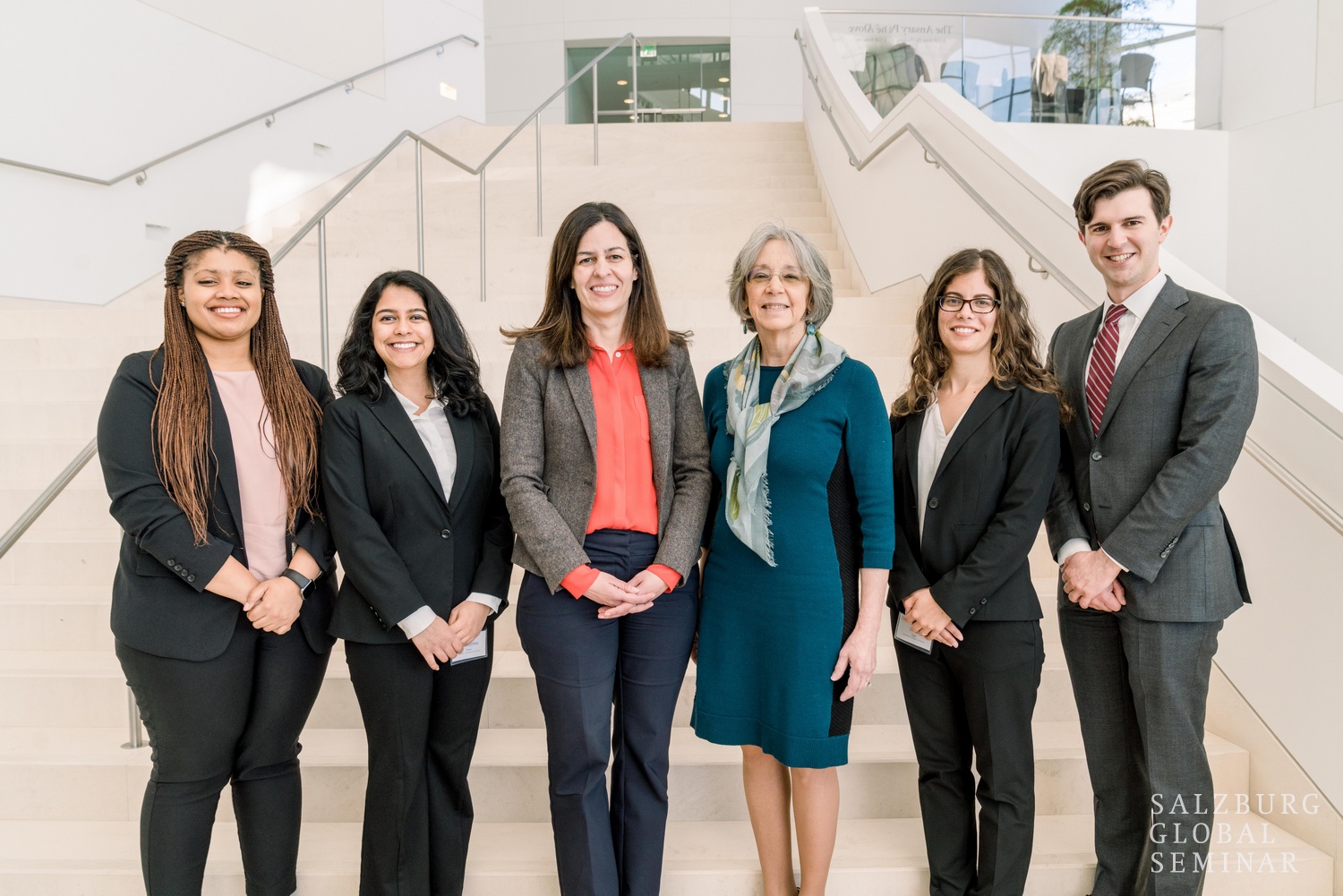Students and Mentors Explore International Legal Challenges in Washington, DC
University of Chicago Law Students Discussed the Future of Public and Private International Law at the Eighth Annual Salzburg Cutler Fellows Program

WASHINGTON, DC – Students from University of Chicago Law School were selected to join their peers from 13 other leading US law schools in Washington, DC to explore the future of public and private international law at the eighth annual Salzburg Cutler Fellows Program.
The two-day program (February 20-22, 2020) saw top law students engage with prominent legal professionals, public servants, and leaders in the fields of international law and public service. Students included Sahar Segal, Victor Hollenberg, Kamara Nwosu and Maheema Haque. They were joined by faculty representative Claudia Flores, Assistant Clinical Professor of Law and Director of the International Human Rights Clinic.
Speakers this year included Judge Diane P. Wood, Chief United States Circuit Judge, United States Court of Appeals for The Seventh Circuit; Luis Almagro, Secretary General, Organization of American States (OAS); John B. Bellinger, III, Partner, Arnold & Porter LLP and former Legal Adviser to the US Department of State and National Security Council; and Stephen J. Hadley, Principal of RiceHadleyGates LLC, former United States National Security Advisor.
While all studying in the US, the 56 students of the eighth cohort of Cutler Fellows represented 13 countries, including Argentina, Australia, Canada, Chile, China, Colombia, France, Germany, India, Kenya, Nepal, and the Republic of Korea, as well as the USA.
Of the 14 law schools taking part in the program, Cornell, Northwestern, and UC Berkeley were welcomed to the program for the first time. These schools joined the law schools of Chicago, Columbia, Duke, Georgetown, Harvard, Michigan, New York University, Penn, Stanford, the University of Virginia, and Yale, which had taken part in previous iterations of the program since 2012.
During this year’s program opening at the United States Institute of Peace, Judge Wood spoke about the importance of international legal institutions, drawing on her experiences presiding over cases with international ramifications as a U.S. Appellate Chief Judge. “As Voltaire said, ‘If God didn’t exist, we would have to invent him.’ I would say if international law didn’t exist, we would be inventing it right now,” Judge Wood said.
On Friday evening, Bellinger discussed war powers with Hadley, reflecting on the evolution of Congress’ war-making authority since the 2001 Authorization for Use of Military Force, as well as the current War Powers Resolution in the US Senate following the recent strike on Iranian General Qassem Suleimani. The next morning, at New York University’s Washington campus, Almagro spoke about the conventions underpinning international human rights laws and the role of the OAS in upholding them.
In addition, Fellows received individual critique on their student papers from faculty of the participating law schools, as well as further advice on how to seek publication in journals. This year’s papers covered diverse topics, ranging from domestic violence, to LGBTQ rights activism, to international environment criminal law and investment and sovereign lending in Africa.
In the program’s Knowledge Café, students discussed personal ambitions and potential career routes in international law with mentors from Third Way, the Foundation for Defense of Democracies, New Markets Lab, the International Monetary Fund and Covington & Burling.
Speaking to this year’s participants, Stephen L. Salyer, President and CEO of Salzburg Global Seminar, said, “It has been a pleasure to see the hard work you have put in and the fast friendships you have made here, and we look forward to continuing these connections through our Cutler and Salzburg Global Fellowship.”
Victor Hollenberg, a student from University of Chicago Law School, said: “Hearing from speakers who are all so accomplished and have had incredible experiences in the international space has been an amazing experience. The program has also enabled me to connect with other like-minded students from across the country and world, to build a network that is going to stick with us for a long time.”